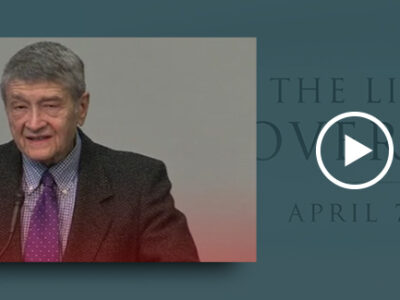“I kept on going into factories, I kept on talking with workers to tell them that I want to be a president of the republic who will protect them, who will protect against outsourcing, that I will not let factories leave France.”
One would think that only France’s socialist presidential candidate could defend such a policy, but the reality is different: France’s newly elected president, Nicolas Sarkozy, made the above statement on French television on April 25. It gives an accurate picture of what the French right’s agenda looks like—and thus how dominant is socialism in France.
Indeed, in last weekend’s election, in which 84 percent of French voters participated, Sarkozy received 53 percent of votes, ahead of the socialist candidate, Segolene Royal, who earned 47 percent of votes. At least, the Right stays in charge for five more years.
Sarkozy’s landslide election shows a will to move France forward by creating an ownership society, promoting entrepreneurship and reducing fiscal and social regulations. Yet, Sarkozy’s friendship with entrepreneurs and businessmen, must not be confused with true commitment to free economy and society as Americans understand it. Indeed, during this electoral campaign, classical liberals and free traders disappeared from the French political spectrum. The desire for a strong state that can provide order and security took precedent over economic freedom. Globalization and free-trade policies were presented as threats to the French people—threats to their purchasing power and their social security. All candidates competed over who could propose the most sweeping social and protectionist policies—policies that diminish the influence of a market-based economy in French society. Therein, Sarkozy and Royal were somewhat alike, despite the foreign press’s characterization of them as right-leaning and left-leaning, respectively.
Nowadays, French politics is based on one fundamental idea: only the state is able to organize society. Not a state that allows citizens to take care of themselves, but a state that will take care of citizens. Sarkozy is the heir of an authoritative idea of the state. He relies upon this fundamental concept, and his program implies that only the state has this “old wisdom” inherited from the past; the State alone is a reliable source of economic and social progress. Society is not organized by freedom and spontaneous order, but it must be defined—precisely—by the authority of the State. And even if inside the Right, a trend exists that promotes a French social model that welcomes diversity, freedom, and subsidiarity, yet Sarkozy’s French right and the French left instinctively prefer authority and control.
Strong and radical market-friendly reforms did not appear on any of the presidential candidates’ programs, all wishing to strengthen the welfare state. None of the candidates, whether from the right or the left, offered a positive vision for the future, nor a sound strategy for economic growth in the new economy of communication and knowledge.
Further, there was a strong sense of French nationalism in both the socialist and right-wing programs, which give even more power to the state. Sarkozy, while minister of finances in 2005, became the champion of “economic nationalism” and protected French companies from foreign companies. This quite aggressive nationalism evolved in Sarkozy’s desire to define France. “I want us to explain what is France,” Sarkozy said in announcing the probable creation of a Ministry of National Identity.
Under a President Sarkozy, state intervention in the French economy will come not only through domestic policies but also from policies directed toward Europe and the global economy. Sarkozy wishes to extend his vision of big government to the European Union. “I want to use Europe in order to protect the French against globalization,” he says, explaining that, “Europe must not be the Trojan horse of globalization, Europe must give protection.” And on a wider scale, Sarkozy declared that, “Countries which do not respect the Kyoto Protocol and which import products to France, must be taxed with the carbon emission tax.” He plans to use the Kyoto Protocol as a pretense for further protectionism.
Sarkozy was trusted by the French people because he was judged to be better for France due to his political experience and the need of security. Yet, one should not expect that France will now be reformed with radical deregulation of working laws, with more competition and less protectionism, with reduced taxes and public expenditures, and with reorganization of public services. Instead, Sarkozy will only strengthen big government and fulfill his promise: “I wish to be a president who protects its fellow countrymen.” That is exactly what France can now expect.




